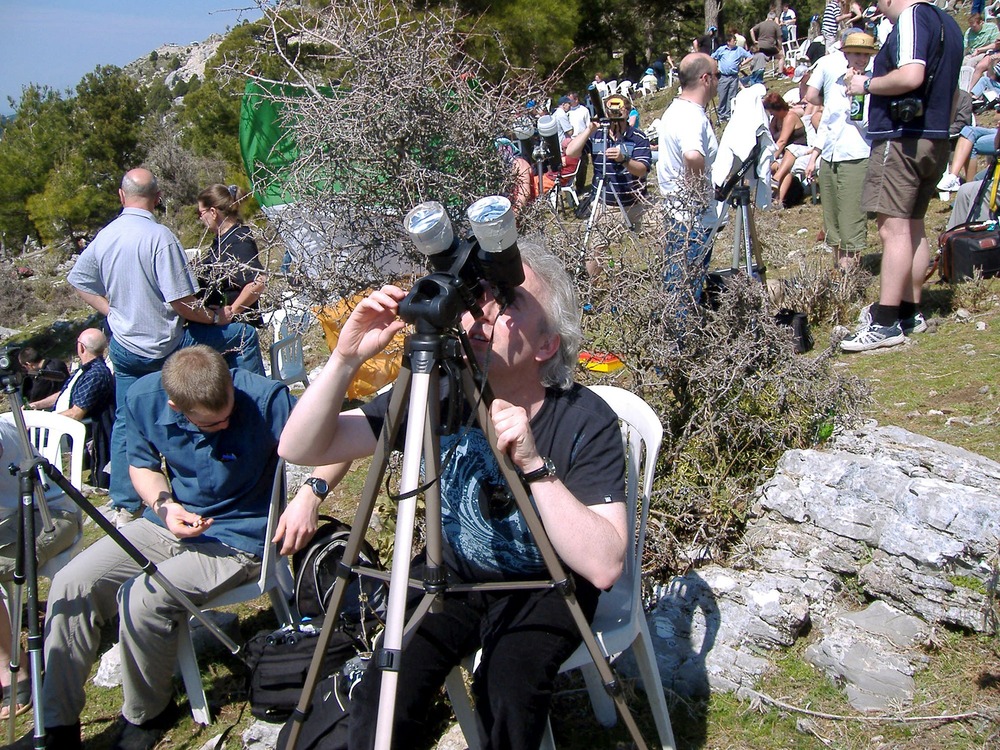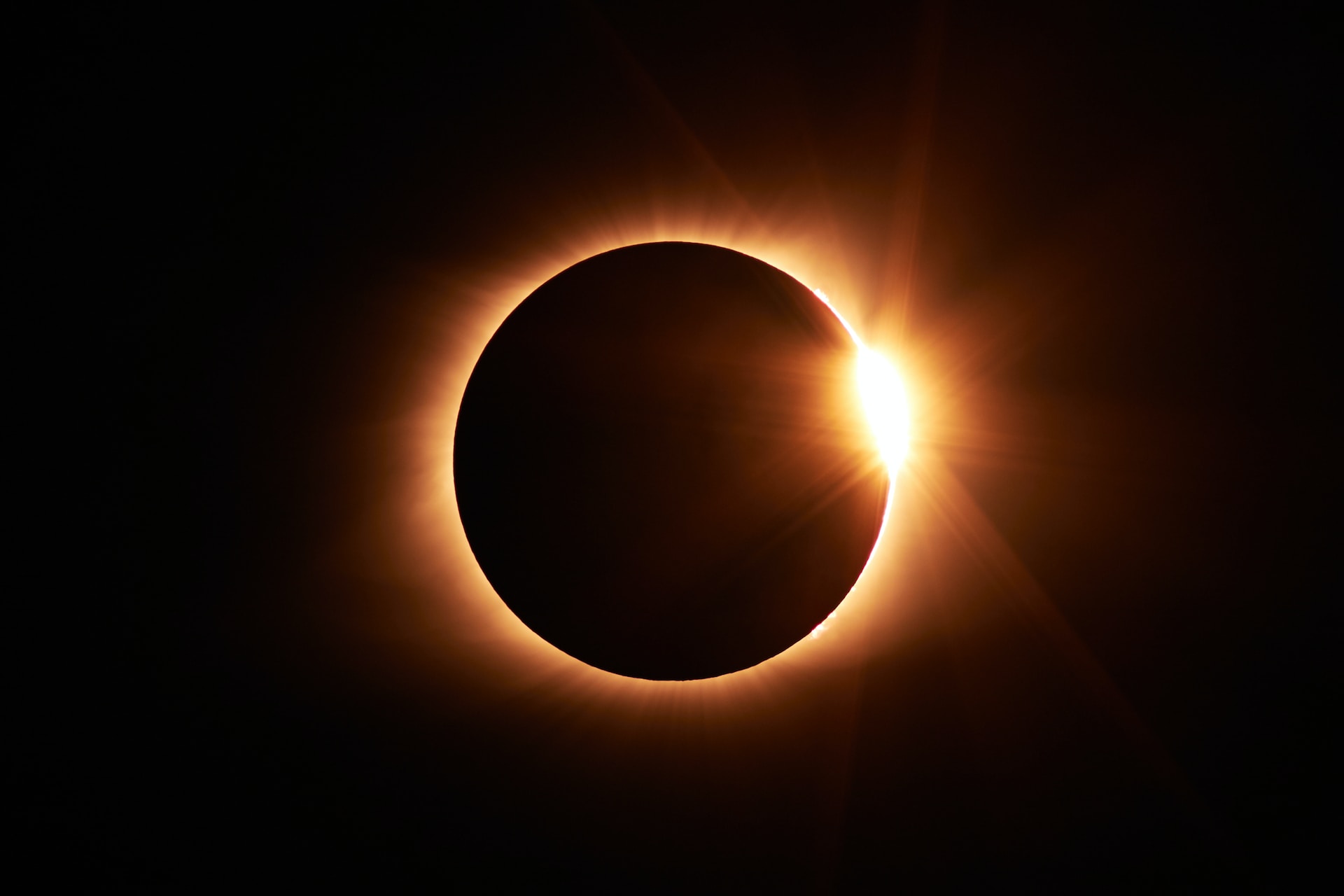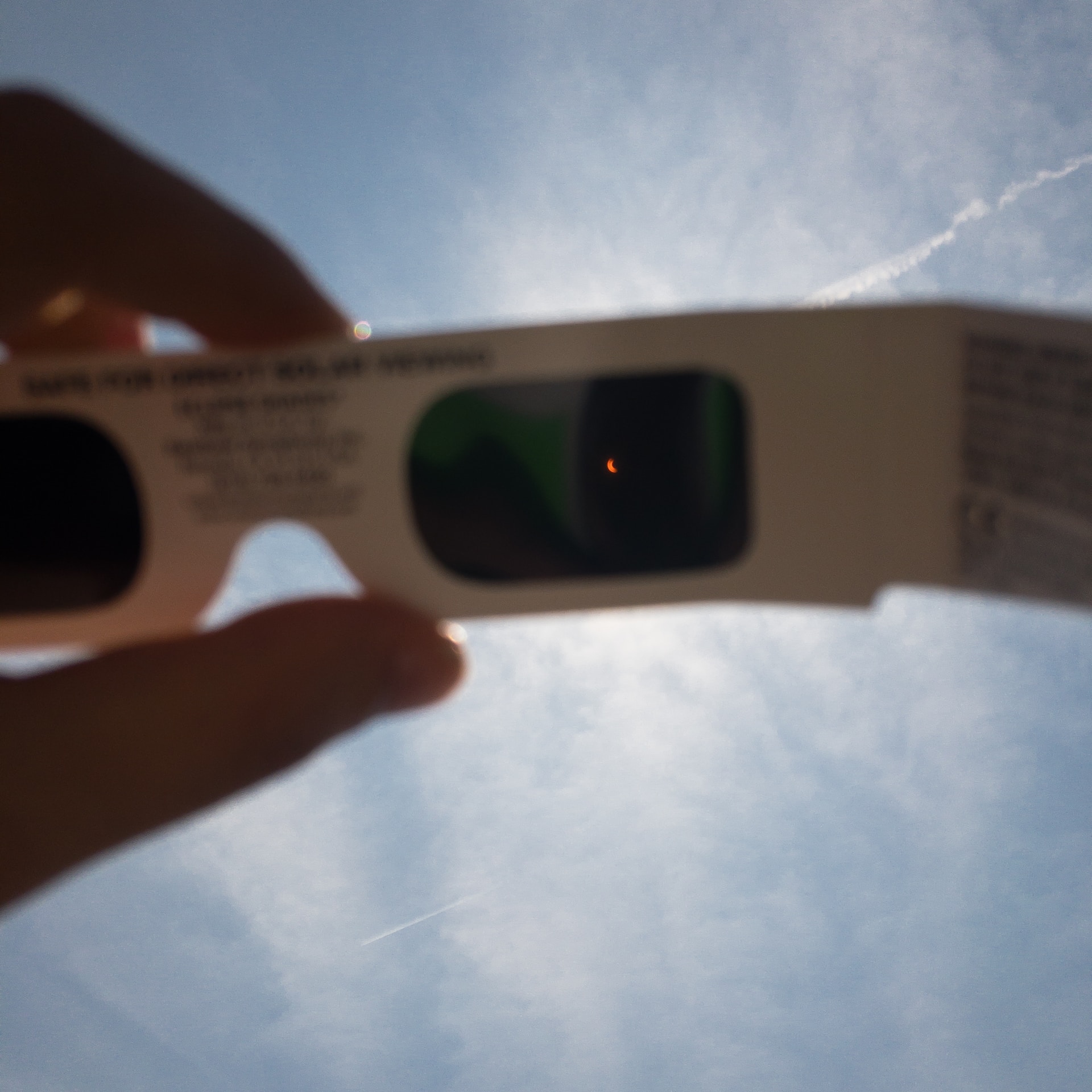Millions of Americans will soon have the opportunity to observe an annular solar eclipse known as the “ring of fire.” However, if you look unprotected at the Sun during this phenomenon, there is a risk of damaging your eyes. Learn how to avoid vision damage during a solar eclipse and enjoy watching safely.

During a solar eclipse, when the Sun is partially or totally obscured by the Moon, the light remains incredibly bright. Looking at the Sun without proper protection can cause solar retinopathy, which can damage your vision or even lead to its irreversible loss.
What happens if you look at a solar eclipse without protection
Our eyes have natural defense mechanisms that regulate the amount of light entering them. On a bright sunny day, the pupils become smaller, limiting the incoming light. But this protection is ineffective when it comes to directly looking at the Sun.
Our star emits extremely bright light, which can damage the photoreceptors in the eyes. When such light gets into the eyes, chemical reactions occur that can lead to damage to the vision or even its loss. This is called solar retinopathy.

There is also a second protective mechanism of the eyes. When we look at something bright, we tend to blink. This is known as the corneal corneal or blink reflex. It does not allow us to look at something too bright, which can harm our eyesight.
Just before the solar eclipse, the Moon partially covers the Sun. At this point, there is a temptation to look at a partial solar eclipse without blinking. But this is very dangerous, because even a tiny ray of sunlight remains too intense for our sensitive photoreceptors.
How to safely observe a solar eclipse
To avoid eye damage during a solar eclipse, it is important to wear special sunglasses. They block most of the sun’s rays and allow you to safely observe the eclipse. Do not try to look at the Sun without eye protection!

If sunglasses are not at hand, you can make, for example, a pinhole camera to observe the phenomenon safely.
You need to remember that the health of your eyes is the most important thing. And there is no event worth risking your eyesight for. Wear protective glasses or use alternative observation methods to enjoy a solar eclipse without health risks.
Earlier we reported on how total solar eclipses on Earth would disappear forever in the future.
According to popsci.com.
Follow us on Twitter to get the most interesting space news in time
https://twitter.com/ust_magazine

